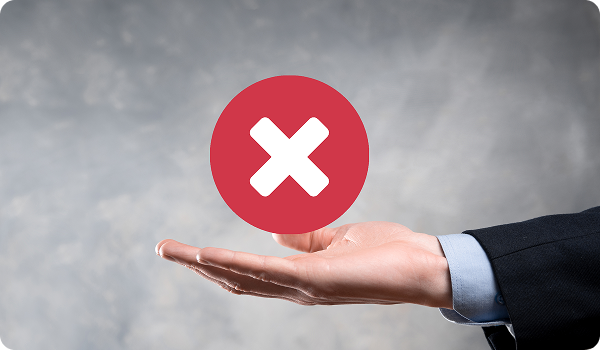Welcome to your first month of recovery
Whether you’re starting a program, transitioning from detox, or taking the first steps on your own, the first 30 days of sobriety are often the most challenging—and the most transformational.
At BeBold Recovery, we know this stage is about more than just staying clean. It’s about rewiring your habits, finding your strength, and building a support system that lasts. This guide walks you through everything you need to know to make the most of your first month.
.png)
Why the First 30 Days Matter
The first month of sobriety is when your brain and body begin healing. During this period, withdrawal symptoms may still linger, emotional ups and downs are common, and cravings can be intense. But it’s also the time when new habits start forming and you lay the groundwork for long-term recovery.
Key changes you’ll experience:
- Physical detox and brain chemistry recalibration
- Emotional sensitivity and mental clarity
- Sleep disturbances or improvement
- Shift in daily structure and decision-making

Common examples of triggers:
- Seeing someone using
- Visiting a place you associate with substance use
- Stress or emotional turmoil
- Celebrations or holidays
- HALT (Hungry, Angry, Lonely, Tired)

Benefits of having a sober network:
- Reduces feelings of isolation and loneliness
- Increases accountability and motivation
- Provides emotional support during cravings or setbacks
- Encourages personal growth and shared purpose
- Helps you develop new sober friendships and social activities

Benefits of having a sober network:
- Reduces feelings of isolation and loneliness
- Increases accountability and motivation
- Provides emotional support during cravings or setbacks
- Encourages personal growth and shared purpose
- Helps you develop new sober friendships and social activities

Getting back to your career or education can help:
- Restore self-esteem and purpose
- Provide structure and routine
- Rebuild healthy social connections
- Reinforce your motivation for sobriety
But without a plan, the stress and triggers of busy environments can pose a relapse risk.

Benefits of family involvement:
- Improves communication and trust
- Reduces risk of relapse
- Heals long-standing emotional wounds
- Promotes accountability and structure
- Helps break generational cycles

Evidence shows that expressive writing:
- Reduces stress and anxiety
- Improves mood and emotional regulation
- Helps clarify thoughts and triggers
- Increases self-awareness and decision-making

According to a 2021 study in the Journal of Substance Use, individuals who journaled during recovery reported higher emotional stability and reduced cravings compared to those who did not.
SEO Keywords: addiction recovery journaling, journal prompts for sobriety, how to start a recovery journal, mental health journaling
Common Physical & Emotional Symptoms in First 30 Days
According to the National Institute on Drug Abuse (NIDA), individuals who complete 30 days of structured treatment are 3x more likely to remain sober long-term than those who attempt recovery alone.
Fatigue, insomnia, headaches
Optimism, increased clarity

Benefits of having a sober network:
- Triggers and Warning Signs
- Coping Strategies
- Emergency Contacts
- Support Network Map
- Daily and Weekly Routines
- Motivation Reminders

Cravings tend to follow a pattern:
- Trigger – Something activates the memory of use
- Automatic Thought – "Just one won’t hurt"
- Craving – The physical/emotional urge to use
- Response – Either coping or relapsing
The key to success: Learn how to pause and interrupt the cycle before it reaches the final stage.

1.
Peer Recovery Groups
Join regular meetings with:
- 12-Step groups (AA, NA, CA)
- SMART Recovery
- Refuge Recovery or Dharma Recovery

2.
Therapists and Counselors
Licensed professionals can:
- Guide emotional healing
- Help address co-occurring mental health issues
- Offer individualized strategies for staying sober

3.
Recovery Coaches or Sponsors
These mentors:
- Offer lived experience guidance
- Are available in moments of crisis
- Help with step work and life transitions

4.
Family and Friends
Healthy family members and supportive friends can:
- Celebrate your milestones
- Respect your boundaries
- Show up when it matters most

5.
Online Recovery Communities
Digital groups, apps, and forums offer 24/7 access to:
- Peer encouragement
- Live chats and forums
- Accountability trackers

1.
Peer Recovery Groups
Join regular meetings with:
- 12-Step groups (AA, NA, CA)
- SMART Recovery
- Refuge Recovery or Dharma Recovery

2.
Therapists and Counselors
Licensed professionals can:
- Guide emotional healing
- Help address co-occurring mental health issues
- Offer individualized strategies for staying sober

3.
Recovery Coaches or Sponsors
These mentors:
- Offer lived experience guidance
- Are available in moments of crisis
- Help with step work and life transitions

4.
Family and Friends
Healthy family members and supportive friends can:
- Celebrate your milestones
- Respect your boundaries
- Show up when it matters most

5.
Online Recovery Communities
Digital groups, apps, and forums offer 24/7 access to:
- Peer encouragement
- Live chats and forums
- Accountability trackers

Step 1: Educate Yourself About Addiction
Understanding the disease of addiction can help you support your loved one with compassion, not blame.
Key topics to explore:
- Addiction as a brain-based disorder
- Common co-occurring mental health issues
- The recovery process: detox, PHP, IOP, OP
- Relapse risk factors and warning signs

Step 2: Set Healthy Boundaries
Boundaries protect your wellbeing and promote healthier dynamics.
Examples:
- “I will not allow substances in my home.”
- “I’m available to talk, but not when you’re high.”
- “If you miss treatment, I won’t enable excuses.”
Pro Tip: Boundaries are not punishments—they are self-respect in action.

Step 3: Focus on Communication
Effective family communication means:
- Using “I” statements instead of blame
- Listening without interrupting
- Expressing emotions calmly and honestly
Try this formula: “I feel [emotion] when [behavior], because [reason]. I need [clear boundary or request].”

Step 4: Participate in Family Therapy or Support Groups
Healing is faster when families are supported too.
Options to consider:
- Family therapy through your loved one’s treatment provider
- Al-Anon, Nar-Anon, or Families Anonymous
- BeBold Recovery’s #BeOne Family Program

Step 5: Stop Enabling—Start Empowering
Enabling can delay recovery. Empowerment supports responsibility.
Examples of enabling vs. empowering:
.svg)

Step 6: Practice Self-Care and Forgiveness
You can’t pour from an empty cup.
- Set aside time for hobbies, therapy, or spiritual practices
- Talk to a counselor about your feelings
- Journal about your grief, anger, or hope
- Allow yourself to forgive—even when trust takes time
Affirmation: “I am allowed to heal, too.”
Pro Tips to Make It Stick
Evidence shows that expressive writing:
- Keep your journal private to write honestly
- Don’t judge your writing—there’s no right or wrong
- Use affirmations to end entries on a hopeful note
- Reread past entries to see your growth

Affirmation to close with: “I honor my progress, not perfection.”

Red Flags to Watch For
If you notice these signs, it’s time to seek support:
- Strong cravings or obsessive thoughts about using
- Isolation or withdrawal from your support system
- Declining mental health (depression, anxiety)
- Justifying “just one drink” or using again
Reach out—relapse is a risk, but it’s preventable with the right support.
Crisis Support Resource:
SAMHSA Helpline – 1-800-662-HELP (4357)

Identify
List your top 5 triggers

Avoid
Come up with a way to reduce exposure

Respond
Assign a coping strategy to each trigger
If you start to feel overwhelmed, reach out. Signs to watch for:
- Skipping meals or meetings
- Avoiding friends or isolating
- Feeling like you’re "faking it"
- Resentment, burnout, or overcommitment


Ready to Keep Going?
The first 30 days of sobriety are the foundation of everything to come. Whether you continue with IOP, OP, MAT, or alumni support, BeBold Recovery is here to walk beside you every step of the way.
If you need help today, call us now. We offer immediate assessments, free daily transportation, and a full continuum of outpatient care.
You're not alone. And you never have to be again.
Strong plans create strong recoveries. Let’s build yours together.
You are not your cravings. You are your courage.
Your words are powerful. Use them to rebuild your life.
Healing is possible—for them and for you.
Take the First Step Today
If you’re ready to explore your options — or just want to ask questions — reach out today. We’ll guide you with clarity, compassion, and confidence.
You don’t have to figure this out alone. Let’s take the next step — together.
.png)



.svg)
.png)








.svg)
.svg)









.png)
.png)